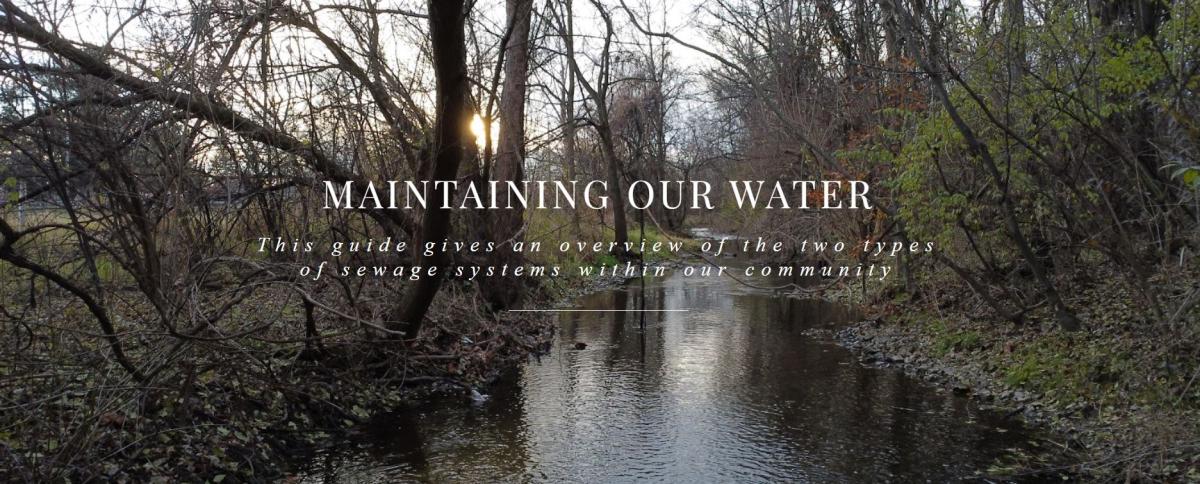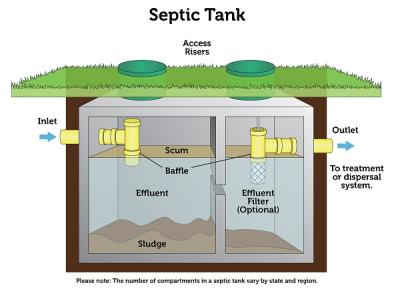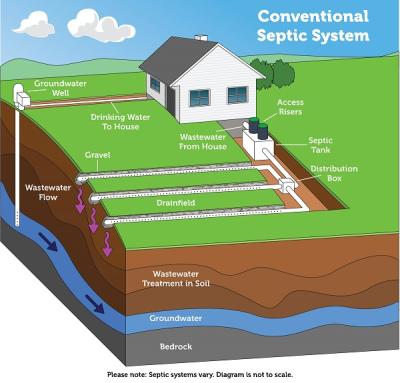

Maidencreek Township is largely made up of properties that are connected to a public sewage treatment plant. Public sewer means that you aren't responsible for personal upkeep other than paying sewer bills. However, another water treatment method also exists known as an On-lot Disposal System, sometimes called a Septic System. This secondary system is more common in properties that are more isolated.
Distinguishing which of these two your property has is integral to ensuring your water supply is clean and healthy for consumption.
The key reason to identify which of these your property has is to determine if you need to maintain upkeep on a septic system in your property. A septic system provides a private water supply that can be more affordable, but it requires maintenance so that your water is safe, and your septic system does not break.

WHY DO I NEED TO MAINTAIN MY SEPTIC SYSTEM?
Within your septic system is a septic tank where waste is initially deposited. Here, the waste is primarily treated by separating it into layers. The heaviest layer consists of sludge, formed from solid waste, settled at the bottom. In the middle, there is the treated clear liquid, and on top, a lighter layer known as scum forms. The clear liquid then leaves the tank to be treated in the soil for reuse. As time passes, the sludge and scum inside your septic tank gradually build up. Therefore, it is essential to have the tank inspected and pumped every 3 to 5 years to avoid several risks:
- System failure: A build-up within your septic tank can cause blockages, leading to sewer back-ups.
- Water contamination: An unclean tank can carry harmful bacteria and viruses, posing a risk to your water supply.
- Damage costs and loss of property value: A failed system can be more costly to repair than regular maintenance. Moreover, it can also negatively impact the value of your property.
For a full description of how to maintain your On-Lot Disposal System, you can view this guide here from the Pennsylvania Septage Management Association that explains in detail.
